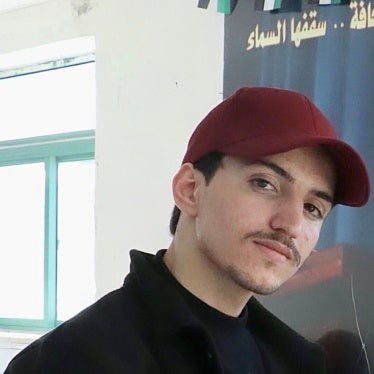For more than a decade, Israel and its auxiliary Lebanese militia have been expelling innocent civilians from their homes and villages in south Lebanon.
In a 56-page report released simultaneously in Jerusalem and Beirut, Human Rights Watch said that entire families have been expelled from the occupied zone in a summary and often cruel manner, without due process of law. The victims, who have included elderly men and women as well as children, have been forced to leave their homes and villages without any advance notice and were generally not permitted to bring any personal possessions with them.
Human Rights Watch said that this practice has been in effect at least since 1985, and that the number of expulsions increased dramatically in 1998 and 1999. "South Lebanon is not just a security zone, it's an occupied territory where innocent civilians also live," said Kenneth Roth, executive director of Human Rights Watch, "The abuse of those civilians has got to stop."
Human Rights Watch said that hundreds, if not more, have been expelled since 1985, but the exact number is unknown because no one over the years, including the Lebanese government, has maintained comprehensive statistics. At least 46 Lebanese who were expelled in 1998 reported their cases to local offices of the International Committee of the Red Cross. The US State Department, in sharp contrast, reported that only 12 Lebanese were expelled in 1998 -- five women, four children, and three men.
Most Lebanese have been expelled as punishment for suspected activities of their relatives. Those activities may include attacks on Israeli troops in the occupied zone, membership in Hizballah and other Lebanese groups that have military wings, and refusal to serve in the South Lebanon Army (SLA), Israel's auxiliary militia in the zone.
The expulsions are carried out in secrecy. Families are typically bundled into unmarked civilian cars and taken to a local SLA security office, where they are informed that they are being expelled. They are not permitted to return home and gather personal belongings, but are promptly transported to a crossing point at the edge of the occupied zone and deposited into the no man's land, where they must walk to the first Lebanese army checkpoint.
Israel has always denied responsibility for the actions of the SLA, although it admits to funding, arming, and coordinating intelligence-gathering with the militia. But as the occupying power in its self-described "security zone" in south Lebanon, Israel bears ultimate responsiblity for both its own actions and those of its proxy militia.
Deportations and forcible transfers of civilian residents in occupied territory are categorically prohibited by the Geneva Conventions.
Human Rights Watch called on the U.S. and the member states of the European Union to publicly condemn the expulsions, and to press Israel to allow the expelled Lebanese civilians to return to their homes and recover their property under safe conditions, free of any form of coercion or initimidation from occupation security authorities.
Roth said that Human Rights Watch had urged President Clinton and other senior administration officials to discuss the expulsions with Israeli Prime Minister Ehud Barak during his July 15-20 visit to the US.
"Ehud Barak says he wants to make peace with Israel's neighbors," said Roth. "But violating the rights of civilians in South Lebanon is not a very good way to make peace."
Human Rights Watch also called upon the government of Lebanon to maintain complete and detailed files about expulsions of families and individuals from the occupied zone, and make such information available to the international community.
------- Khowlah Daleh, 64, and her husband, Ibrahim Hashem, 57, were expelled from the village of Sheba', in the northeastern section of the occupied zone, in May 1998. They returned home from a visit to Beirut and found a senior South Lebanon Army (SLA) security official waiting for them. He ordered them to report to a nearby SLA security office the next day, which they did. SLA security operatives questioned them for an hour about the activities of their adult children who lived in Beirut, and then put them in a car, drove them to the Zumrayya crossing point, and summarily expelled them from the occupied zone. Mr. Hasem told Human Rights Watch that his request to stop at their house and gather some clothing was refused.
The Hashem family lost their home and all its contents, as well as about U.S. $6,000 in annual income from their orchards of cherries, walnuts, and pomegrantes. "We invested all of our money in our house and land," Knowlah told Human Rights Watch. "I cry myself to sleep every night since this happened."
At 6:00 in the morning on September 17, 1996, soldiers of the South Lebanon Army (SLA) surrounded the home of the Abdullah family, in the village of Houla in Israeli-occupied south Lebanon. One soldier told the family that they had to report immediately to a nearby SLA post. Mr. Abdullah, 67, his wife Khadija, 57, and their two daughters were transported there in an unmarked civilian car. "No one talked to us for two hours," Khadija told Human Rights Watch. "I thought they were sending us to prison."
Finally, two SLA militiamen told the family that they were being expelled from the occupied zone. They denied Khadija's request to return to her house and gather some possessions. The family was placed in another unmarked car, driven to the Beit Yahoun crossing point, and expelled from the zone.
Why were they targeted and punished? A week before the expulsion, Khadija's 19-year-old son Ali, who had been forcibly conscripted into the SLA earlier that year, had deserted the militia. This family of farmers lost their house and all its contents, as well as three cows, 60 chickens, and income from wheat, lentils, fava beans, vegetables, milk and eggs. They now live in Sidon.






